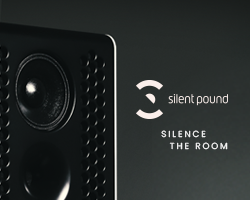It is 40 years this month since Iggy Pop’s debut album, ‘The Idiot’, was first released. Back in the grunge-heyday of the early 90s, ‘The Idiot’ was a puzzling prospect. Iggy Pop and Lou Reed were basically the godfathers of anything that was alternative, but here was a classic album of Pop’s canon, typically considered his best, that was drenched in synths and minimalistically dancey rhythms, with nary a guitar to be found on most of the tracks! Robert Harris explores this iconic record.
Synths and the David Bowie association made it seem as if The Idiot should be a pop album, but it wasn’t. The sound bore little resemblance to the dated pop cheese of 1980s synthesis. In fact the album resembled the glacial neo-modernism of experimental 70s electronica, where early analogue synthesisers were often treated as a wholly different form of instrumentation, which was limited and rather crude in some senses but radically freeing in others. The synthesiser represented an emergent dystopian modernity, viewed as scientific and dehumanising. However, improvements in synthesis (often FM digital and hybrid varieties) by the early 1980s would allow this increasingly accessible technology to be treated as a quasi-realistic instrument replicator that could grab the attention of the radio listener more effectively than the old-fashioned guitar – the latter reeking of 70s uncool, with its associated images: bell-bottoms, long hair, and the avocado toned bathroom, to name but a few.
Bowie himself was on top form during this time, having reached a pitch of creative maturity while still riding high, thanks to the energy of his revelatory early 70s glam rock period. However, it may be telling that Pop’s lyrics are an equal to the album’s music. Pop’s lyrical contribution is uncommonly dark, and oddly enough, his words on ‘The Idiot’ often work to greater effect than Bowie’s equivalent efforts on his near-contemporaneous albums during the so-called ‘Berlin’ period.*
The album’s sound quality, first heard by many courtesy of the 1990 Virgin CD release, was underwhelming, to say the least. Unfortunately this wasn’t a problem with the digital transfer or the 1610/1630 pre-mastering process, both of which could be corrected. Even a remix may not be of much benefit. According to Tony Visconti, Bowie’s longtime producer, the album’s mix was little more than an effort to minimise the problems caused by the primitive techniques employed during the June-July 1976 recording sessions at the Chateau d’Herouville, an eighteenth century mansion located in the French countryside, fitted with a 16 track recording studio. The album was finished off with some overdubs and Visconti’s damage-limitation mix, in Munich, Germany, during the month of August.
The album is also a little wonky from a performance perspective – its unusually raw unfinished state may have led some critics to describe it as Bowie’s Berlin try-out. Bowie played a lot of the instruments himself in a seeming fit of creativity, where even the customary notation of the contributions of other musicians was absent. Bowie was an intuitive musician, which was useful for composition, but not what one could describe as skilled. Only the opening track, ‘Sister Midnight’, truly has a finished feel to its production, after Visconti overdubbed the efforts of session musicians.
Pop’s vocal performance is often impassioned and committed, but feels similarly slapdash, as if he was picking up the mic to sing certain lines for the first time – what technicians often call the ‘guide vocal’. There was probably some intent to leave the vocals in a pretty raw state, given the themes explored and the overall feel of the album, but there is quite a lot of distortion that could have easily been avoided.
Yet, beneath these limitations, and the dark rather dissipated audio of the album, the listener could find an uncompromising nihilistic sensibility of near-unrivalled quality. Certainly, there may be a few darker works out there – Reed’s ‘Berlin’ springs to mind – but it wasn’t for nothing that this is the very album Ian Curtis, the ill-fated leader of Joy Division, picked as his final listen before committing suicide.
The album features themes of death and transformation throughout: the end of youth (‘Dum Dum Boys’) and innocence (‘Sister Midnight’); the death of love (‘Tiny Girls’), and even of the individual self (‘Mass Production’). The over-arching themes may be random or coincidental, and of course over-analysing rock lyrics can often be a problem, but it surely must not have been lost on Pop and Bowie that the album would stand as both a major departure and a new beginning for both artists, after suffering significant personal traumas in what was then the very recent past. Bowie would enter his electronic phase, while Pop would largely leave his old ‘Stooges’ bandmates behind, and finally forge a solo career, thanks in part to the assistance of his famous friend. As such, it is fair to say that the songs possess a particular gravity, representing strong statements about the past and the future for both artists.
Calling Sister Midnight
The album opens with ‘Sister Midnight’, which was the only largely-complete Bowie song coming into the sessions. An early version of the track was played during his 1976 “Station to Station” tour, which sounds surprisingly conventional when compared to the finished product.
http://www.youtube.com/watch?v=B070R8F5m4U
On ‘The Idiot’, ‘Sister Midnight’ features a number of entwined electric guitar lines, of increasing intensity, over a mix of droning and rhythmic synthesiser lines. Iggy adds robotic/mechanistic lyrics, offering detached diagnostic advice: “I’m a breakage inside”. Soon however the sentiment turns increasingly fraught, matched by the nigh on hysterical tone of the vocals and the clipped guitar lines.
The figure of Sister Midnight seems to represent either a broadly destructive facet of human need, and/or the dark side of the narrator’s own character, with whom he angrily demands some attention. The narrator proclaims in an accusatory manner: “you’ve got me walking in rags… you put a beggar in my heart”, after citing an incestual dream about his mother, in which his father tries to kill him.
The album’s title evokes Dostoevsky’s famous philosophical novel of the same name, where a very worthy protagonist struggles with a variety of challenges as he interacts with a corrupt immoral society, in which his efforts to do good often cause harm. The album’s title may also refer to a line in ‘Sister Midnight’ “I’m an idiot for you”. The narrator of the song may be the actual Idiot, a fool at the mercy of his desires, trapped by unhappy circumstances possibly of his own making. He continues to plead “Can you hear me call/Can you hear me at all” as the track approaches its end, suggesting there will be no satisfactory conclusion. ‘Sister Midnight’ represents a clear thematic introduction for an album that draws a relationship between thrill-seeking and bitter regret but offers no solution.
After the psychodrama of Sister Midnight, comes the icy, detachment of ‘Nightclubbing’, which features a swaggering drum beat, droning near-monotonic synth, and synth bass, punctuated by further glacial synthesiser drones, while a piano largely sets down the simply melody, aided by intermittent guitar breaks. Pop’s descriptive lyrics, of a night out on the town, are so forward in their descriptiveness that they could be described as near-existential, and seem to fuse the voice of Andy Warhol or Lou Reed, with Bowie himself, in a bemused, disinterested, and decidedly camp tone.
Along with ‘Funtime’, its conceptually twinned track, and the album’s closer, ‘Mass Production’, ‘Nightclubbing comes across as one of the most idiosyncratic compositions on the album, seemingly created as a vehicle for the brand of largely monophonic analogue synthesis available at the time.
Whereas Pop seems to be viewing a night’s events through the eyes of another on ‘Nightclubbing’, his own voice comes out on ‘Funtime’, which immediately follows. The song pushes up the tempo, offering a chaotically climatic intensity, to the journey that begins with the prior track. The track’s pure chemical intensity suggests that it might have been better placed nearer to the end of the album.
‘Baby’ contrasts as quite a clime-down from ‘Funtime’s’ frenzy. It presents a deeply misanthropic worldview, where two people walk down ‘the Street of Chance’, a metaphor for life itself, where there are in reality very few chances and rather a lot of intention described as “unjust”. The song seems to be an analogue to Bowie’s more subtle ‘Golden Years’, where the narrator also talks to his female partner, but ‘Baby’ features an older Pop talking rather philosophically to a younger partner: “I’ve already been down the Street of Chance”. The song seems to hint at Pop’s own life and career, his career failures, and drug addition, when he exhorts his lady friend to “please stay clean”. It is perhaps the most Bowie-esque with intermittent vaguely glam rock guitar and plonking London East End piano, which signifies how far Bowie had changed in just three or so years, since his final glam album, Diamond Dogs.
‘China Girl’ is an album high-point that stands as one of Pop and Bowie’s biggest creative successes. The song presents the listener with an almost Freudian analysis of a conflicted personality. We are initially presented with images of love and adoration for the narrator’s object of affection, the China Girl, where Pop gives an almost casual vocal performance. These images of simple adoration contrast starkly with subsequent images of the narrator’s excessive desire for power and control, where Pop’s vocal performance becomes increasingly animated. The narrator’s deep-seated desire for totalitarian power may be explained as a way of compensating for his basic inability to ultimately satisfy his lover. Even his gifts to this lady can be seen as some sort of ultimately unsuccessful effort to exercise control, since she rebuffs him at the end. The track represents one of Pop’s most impressive lyrical feats, which should sound extremely pretentious but manages to come across in a wholly unaffected manner.
The music is also impressive. Guitar and synthesiser drive a melodramatic but unquestioningly despairing sense of doomed love. Although the song is said to be motivated by an extra-marital affair at the Chateau, it seems as if Pop adopts Bowie’s emaciated nigh-on fascistic ‘Station to Station’ persona. At the time, Bowie made a number of comments supportive of fascist politics, which seemed to match his freshly minted ‘Thin White Duke’ persona. When Pop features the protagonist stumbling “into town/Just like a sacred cow/Visions of swastikas in my head/And plans for everyone”, it clearly evokes Bowie’s May 1976 NAZI salute during a speech when meeting fans at London’s Victoria Station, upon his much-heralded return to the country.
‘Dum Dum Boys’, reputed to have solely been composed by Pop, is the most conventional guitary track on the album. It is also the most biographical, seeming to disclose elements of the story of his old band ‘The Stooges’. It begins in the present, at the end of the story, with their disintegration – the lives of the various Dum Dum Boys have all ended in failure of one kind or another: going straight with a normal lifestyle, death, etc. Pop starts the song by acknowledging the absence of the guys, finding that he cannot adapt to new norms: “I can’t seem to speak the language”. Pop describes his old friends as nihilistic, and anti-social, disliked and alienated from the broader community. “I remember how they used to stare at the ground/ they looked as if they put the whole world, looked as if they, looked as if they put the world.” Nonetheless Pop belonged to this bunch of misfits, perhaps pointing to Pop’s own alienation as a youth. Repetition is used as a lyrical device to emphasise the importance of certain lines:
“People said we were negative/They said we would take but never give/But we’d sing na na dum dum day.
Well now I’m looking for the Dum Dum Boys/Hey where are you now, I need your noise.
Well now I’m looking for the Dum Dum Boys/The walls close in, and I need some noise.”
The song could have stood as a celebration of what the guys once had, but Pop is keenly pained by the absence of what has been lost – their noise, their language, and his place in that unit.
Bowie’s tune, ‘Tiny Girls’, thematically meets ‘Dum Dum Boys’ up to a point. The latter track speaks of the freedom of release in youth, and its subsequent disappointment, while ‘Tiny Girls’ leads with the dashed hopes of love. ‘Tiny Girls’ is easily the bitterest track on the album, which serves equal portions of defeatist pathos, so emphasised by the funereal organ tone (with warbling Leslie speaker) and an excellent saxophone performance by Bowie himself. Bowie’s tune borrows very heavily from the old song ‘Me and My Shadow’.
While ‘Dum Dum Boys’ is a narrative, the telling of a story, Pop spits out his understanding of the truth in the bluntest terms on ‘Tiny Girls’: alienation and the loss of any prospect of happiness, due in no small part to the less attractive qualities of the fair sex. The track thus augers as the least politically correct of all the album tracks, suggesting sexual love is little more than a corrupt practice, for which Pop berates himself for thinking otherwise (“ah what did you think?”). Ultimately, the track speaks about authenticity, where even love, seemingly the last refuge of a life defined by disappointment, is by its very nature a betrayal, regardless of which path one chooses: the tiny girls may refer to conventional women, who may appear to be less worldly than the crazy rock chicks and models to which Pop was accustomed. However, much to his chagrin, he finds that they are really all the same! The tiny girls also “sing of greed”, which draws a rather uncomfortable parallel between love and prostitution.
Pop would return to the theme of adult love in ‘Lust for Life’, which he dismisses as little more than “hypnotising chickens”, but this rejection is far more affirmative, being so made within the context of embracing another form of (presumably) better living: smashing one’s brains with “liquor and drugs”!
After the relative musical convention of ‘Dum Dum Boys’ and ‘Tiny Girls’, the closing track, ‘Mass Production’, returns to the experimentalism of the initial album tracks with a vengeance. This is what proto-industrial music sounds like, ugly, grinding, atonal and outlasting its welcome. Fittingly, there is an emphases on various images of the dirty but comfortingly uniform industralised environment, which stands initially as a warped advocacy, but turns into a private dystopian hell. After noting the alienation that impacts upon human relationships, the narrator becomes alienated by life, where, trapped within a cyclical life and death process of production, he begs for it to end: “Though I tried to die/You put me back on the line”, before describing a dislocation with his physical self: “I see myself here/Its up in the air/And I’m down on the ground”. The lengthiest track, it serves as the most dramatic showcase for the album’s use of synthesisers, but is also its unwieldiest, with atonal droning through much of the song.
Repetive synthesiser notes bring the album to a fitting end. The song, and its closing, does not present any sort of resolution or closure, inferring rather that the album’s dystopian landscape will sustain itself long into the future. While some will rightly deem ‘Mass Production’ to be a tad on the indulgent side, it brings an album filled with unresolved dilemmas, and declining prospects, to an appropriate finish.
‘The Idiot’ stands as a work featuring both artists flexing themselves far from their respective zones of comfort. Such a project would normally be expected to fail – occasionally the album is a bit seat of the pants due to its rushed and fairly experimental structure, but nonetheless delivers an impressive result.
Funtime
It has sometimes been suggested that ‘The Idiot’ is really a David Bowie record, rather than an Iggy Pop album. In the past Pop was sometimes presented as little more than Bowie’s puppet, and indeed the strain of such characterisations, during their Berlin alliance, would drive them apart. Pop had to work hard to ensure his follow-up album, ‘Lust for life’, would be his own creation, rather than Bowie’s.
Although Bowie is almost solely responsible for the music, and it constitutes one of his most creative spells, one has to say that the album is every bit Pop’s creation. It is difficult to envisage how Bowie could have made such a dissonant record without Pop’s presence. After the softer radio-friendly sound of recent albums, re-engaging Pop’s career gave Bowie a new freedom that would subsequently impact upon his own career. A good example of what Bowie’s subsequent record would have been, without Pop, is indicated by the early versions of ‘Sister Midnight’. The track largely continues in the vein of ‘Station to Station’, albeit featuring non-descript lyrics. Although it was the most complete piece of music Bowie brought to the table, Pop nonetheless helped turn it into a wholly uncompromising track.
Disappointment and bitterness and characterise the album. In a sense, it illustrates the subsequent growing pains of adulthood, where the romance and thrill-seeking of the twenties can often hit a hard place by the turn of a person’s thirties, when youth arguably ends with the confronting of mortality, albeit often in a less dramatic manner than with the consequences of Pop and Bowie’s own rather prolific drug use, for example. As such, the album captures a universal human experience, in an inspired albeit messy fashion. The album represents an innovative and still quite unique musical experience today, but it is ultimately the ability of the songs to convey such universal themes through Pop’s unaffected lyrics, aided by the quality of Bowie’s tunes, which brings the listener back to the record, and will similarly attract future generations. Pop also introduced a rare biographical perspective of Bowie’s life during this period, which was not to be found in Bowie’s contemporaneous Berlin albums. As such, ‘The Idiot’ can hardly be construed as an Iggy Pop release only in name.
Even though ‘The Idiot’ was recorded during the summer months of 1976, largely at the Chateau d’Herouville, the album was rather belatedly released in March 1977, to avoid clashing with the release of Bowie’s subsequent album project, ‘Low’, which was delayed by his record company until January 1977. ‘Low’ has considerably fewer flaws, leading some reviewers arguing that ‘The Idiot’ was a try out for Bowie’s Berlin phase. It can however be argued that ‘Low’ is an impressive but ultimately less compelling album, where the emotive heights and despair found on much of ‘The Idiot’ would only be matched on ‘Sound of Vision’, ‘Be My Wife’, and two or three of its instrumental tracks on Side Two.
Pop and Bowie would go on to record ‘Lust for Life’, an album that certainly seems to be a far closer fit for Pop’s personal style, as per much of the rest of his career. Although Pop’s two initial albums starkly differ, ‘Lust for Life’ did feature some of the sharply nihilistic sentiment of ‘The Idiot’, as per the aforementioned title track, which echoes some of the jaded sentiments of ‘Tiny Girls’. ‘Tonight’ also comes across as a sequel to ‘Baby’ where Pop’s young ladyfriend, who he had previously begged to “stay clean”, dies in his apartment from a drug overdose. Perhaps coincidentally, Pop offers to sing his girlfriend a lullaby on ‘Baby’, while on ‘Tonight’, he sings something akin to the same at his dying lady’s bedside. However, in broad terms the album is framed by an altogether more positive outlook.
‘Lust for Life’, a more accessible rock album with several potential hits, turned out to be a commercial failure in the US, which was a surprise after ‘The Idiot’s’ moderate success. Pop would nonetheless go on to affirm himself as a serious solo performer in his own right, with two impressive sequels: ‘New Values’ (1979), and the under-rated ‘Soldier’ (1980). The latter album features a distinct echo from his debut, namely a track called ‘Play it Safe’, which was co-written with Bowie. Above a desolate near-static post-punk aural landscape, Pop seemed to semi-improvise some of his most caustic politically-charged lyrics, which may apply to his reputed dislike of the Carter Administration’s numerous failures:
‘Eisenhauer saw the thing/He said this is sickening
I swear I saw the very thing/I saw it in America
Lets play safe/I never knew how
How to play safe/You told me how
How to play safe/A thousand times:
“You’re too simple minded/Lets play it safe.”/’
Pop and Bowie would continue to collaborate during the 1980s, as they struggled through career low-points, creative and/or commercial. Pop would contribute some good moments to the rather lightweight ‘Tonight’ Bowie album (1984), most notably the lively ‘Tumble and Twirl’, celebrating life in Borneo.
Ten years after ‘The Idiot’, Bowie and Pop would again co-write an album, ‘Blah, Blah, Blah’. Although it has some decent tracks, such as ‘Cry for Love’, and a great cover of ‘Real Wild Child (Wild One)’, ‘Blah, Blah, Blah’ would not match its predecessor. Sadly, that prospect was quite improbable during the 80s, given Bowie’s deep creative stagnation, and Pop’s own loss of direction.
Robert Harris
* [Footnote] Beyond a surprisingly brief stay in the city, the association with Berlin probably relates as much to the broadly Germanic electro sound Bowie was pursuing since the pivotal moments of this phase associate as much with the US and isolation within the French countryside.
This article is dedicated to Jason Smurfit, RIP.
Other Articles by Robert Harris
Leaving Blues: The Story of Taste



















































































































































































































You must be logged in to leave a reply.